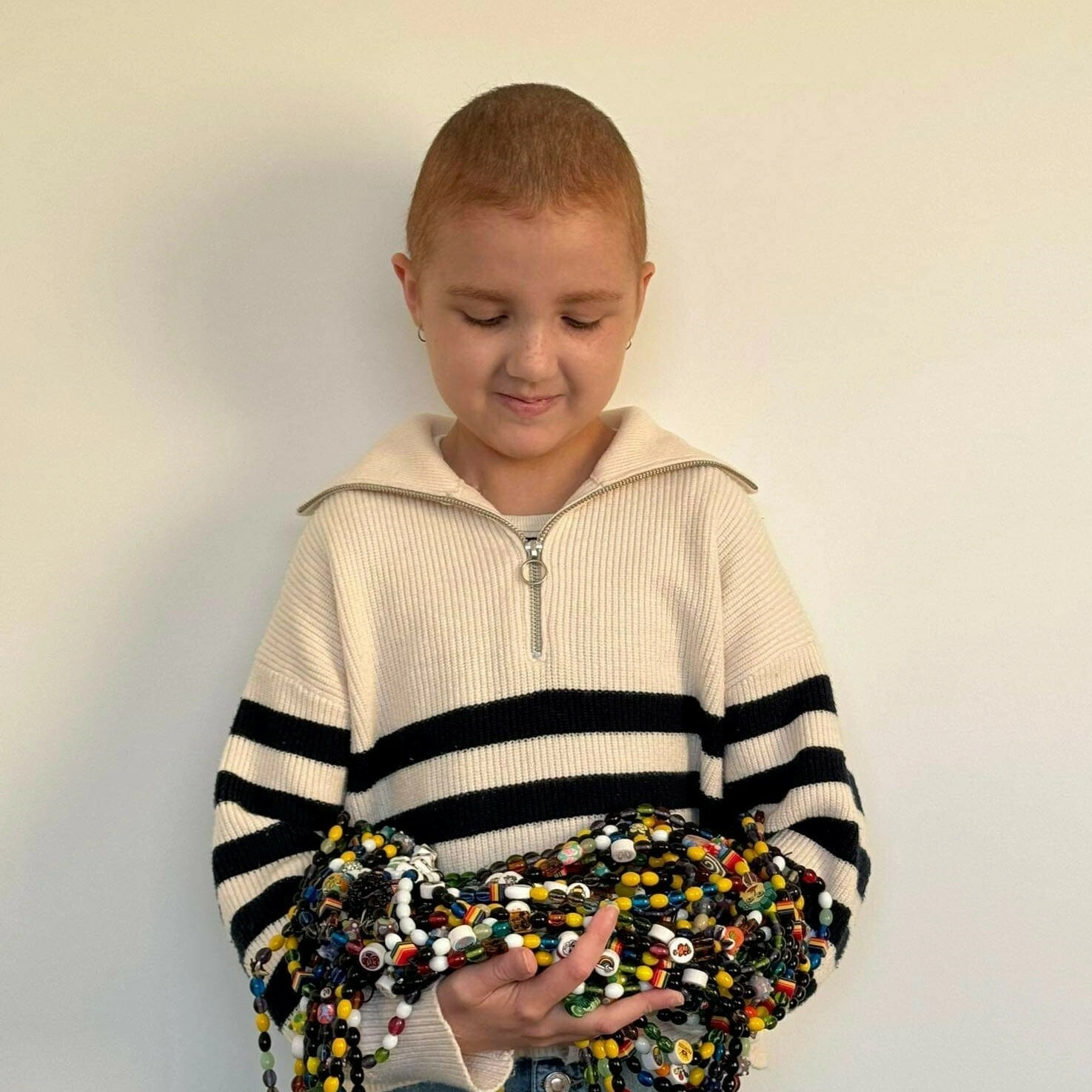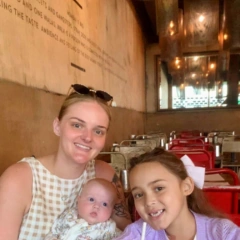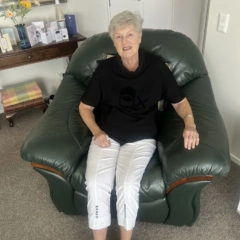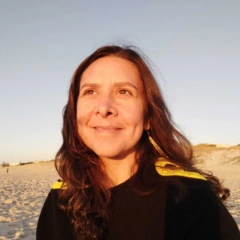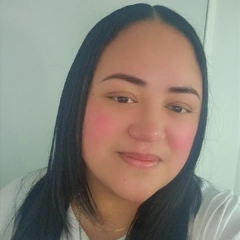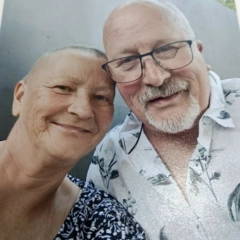A family’s journey
“She’s the most incredible little girl. She’s a keen netballer – she got Junior Player of the Year last year! And she loves singing and music, and all things fashion. She’s just your typical 9-year-old girly girl.”
Hannah Whitehead is talking about her daughter, Frankie, from a room in Starship Hospital. It’s the end of February, and little Frankie has been in Starship since November. She was admitted following her third relapse of acute lymphoblastic leukaemia (ALL) and has faced a string of serious complications after a recent bone marrow transplant.
Frankie was just three when she first became unwell. Hannah and her husband, Dylan, were a busy young couple juggling work and parenting their two little ones when Frankie’s diagnosis came out of the blue.
“Frankie was sent home from daycare... She had a fever and was feeling lethargic, so we just thought she’d picked up a virus. That continued through the weekend, those high fevers, and she was just so, so tired. So that prompted us to take her to after-hours on the Sunday.”
At the after-hours clinic, a doctor noticed some slight jaundice in Frankie’s eyes. She was referred to the ED, where they ran some bloods, and could tell immediately that Frankie had leukaemia.
“Frankie was diagnosed with standard-risk ALL. She went through two years of standard treatment, which involved chemotherapy – intrathecal, oral, and IV. It was 800 days in total. It was a long process and it was really hard. But had we known what was coming afterwards, it would have felt easy by comparison.”
After treatment, Frankie returned to kindy and eventually started school. Life was getting back to normal, and more than a year after the end of Frankie’s treatment, Hannah and Dylan took a rare child-free trip down to Queenstown for Hannah’s birthday. While they were away, Frankie seemed unusually tired, and was taken to the GP by Hannah’s parents for an infection on her hand.
“Dylan and I got home that day. We only had to take one look at Frankie, and we knew exactly what was happening.” A blood test at the hospital was all it took for Frankie to receive a relapse diagnosis.
“From that point, we learned that her leukaemia was no longer completely responsive to chemotherapy alone.”
Frankie underwent four months of immunotherapy to get her to the point where she was well enough to receive her first bone marrow transplant, followed by a week of conditioning chemotherapy. The donor cells came from her little brother, Leo.
“That all went really well. She was in remission and the transplant was deemed a success. And then life was back to normal. She was back at school, and we had 12 months before she unfortunately relapsed for a second time.”
With Frankie’s second relapse diagnosis, Hannah and Dylan were presented with two options: Frankie could have a second bone marrow transplant, or she could try CAR T-cell therapy in Australia. It hadn’t been long since Frankie’s first transplant, and the team at Starship encouraged them to pursue the option of CAR T-cell therapy. They were fortunate to have government funding approved for the treatment.
Within two weeks of Frankie’s second relapse diagnosis, the family were on a plane to Australia. She went through treatment in Brisbane, and 30 days after she received the CAR T-cells, her tests came back clear – she was in complete remission.
Following this, her bone marrow was tested every month. After six months of clear tests, they were spaced out to every three months. It was on the first of these three-monthly tests that Hannah and Dylan’s worst fear was realised – Frankie’s leukaemia had returned for a third time.
“Then we were at the point we’re at now, which was staring down our final treatment option – the second transplant.”
This time, Frankie’s bone marrow donor was her dad, Dylan. She was admitted to Starship in November to have the transplant and has been in hospital since then. “She’s had every complication under the sun with this transplant… The biggest thing we’re dealing with now is Grade 4 Graft versus Host Disease (GvHD). That has been so challenging.”
“But at this point, she’s in remission, and outside of the GvHD, she’s doing so well. We’re just ready to get home.”
Along their journey, Frankie and her family have had ongoing involvement with LBC. “We were introduced to LBC when Frankie was first diagnosed, when Tim came around on the ward,” Hannah says. “He’s popped in a few times since we’ve been here this time. And he very kindly organised a birthday cake for Frankie.”
“He connected her with the online children’s group as well, and he did Monkey in My Chair for her school. She named her monkey Bananas. And then she’s got Bananas Junior, which is the smaller one that hangs out with her. Her friends at school have loved that.”
Hannah’s focus now is on getting Frankie well enough to be discharged from hospital, so the family can return home to Northland and Frankie can be reunited with her schoolfriends. Although there’s a lot to look forward to, Hannah knows it will be an adjustment.
“I think there’s kind of the assumption when you have an experience like this, that treatment finishes and you just pick back up with normal life. But there’s a lot to process and heal from.”
Fast facts: Acute lymphoblastic leukaemia (ALL)
- Approximately 75 New Zealanders are diagnosed with ALL each year.
- Majority of cases are under 5 years of age but can be in adults too.
- ALL is an acute leukaemia affecting immature white blood cells. It usually requires immediate treatment.
- For more information on CAR T-cell therapy, visit lbcnz.link/CTC
